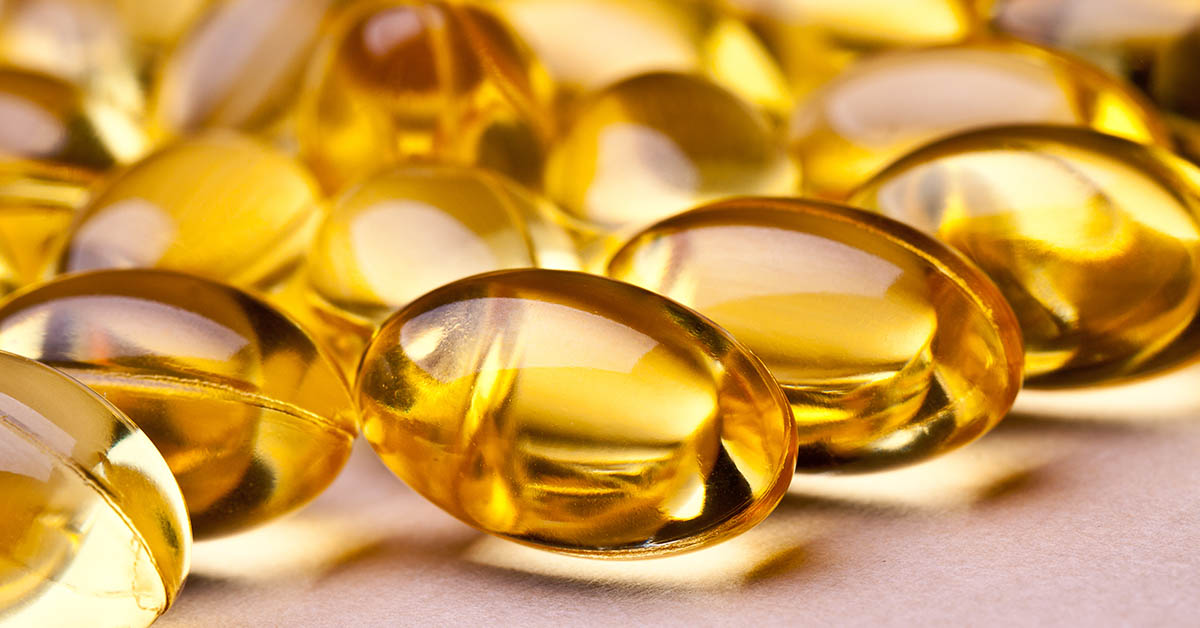This site contains product affiliate links. We may receive a commission if you make a purchase after clicking on one of these links.
Vitamin D is an essential nutrient that plays a crucial role in maintaining overall health and well-being. It helps the body absorb calcium, promotes bone health, supports immune system function, and regulates mood. While the human body can produce vitamin D through exposure to sunlight, many individuals may require supplementation to ensure they are meeting their daily requirements. These are some of the various conditions that may warrant the need for a vitamin D supplement, according to experts.
What is Vitamin D?

Vitamin D is a fat-soluble vitamin that exists in different forms, including vitamin D2 (ergocalciferol) and vitamin D3 (cholecalciferol). Vitamin D2 is found in plant-based food sources, while vitamin D3 is synthesized when the skin is exposed to sunlight. Once absorbed, both forms are metabolized in the liver and kidneys to form the active hormone, calcitriol, which is vital for maintaining calcium and phosphorus balance and promoting healthy bone growth. (1)
Read More: 10 Signs Low Vitamin B1 Levels Are Affecting Your Health
Types of Vitamin D and How They’re Different
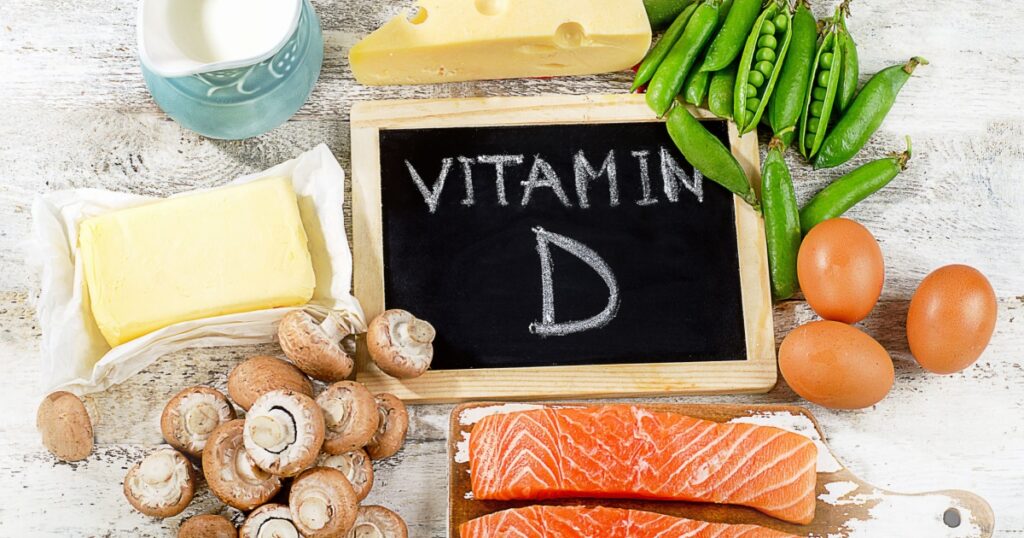
Vitamin D2 and vitamin D3 have distinct origins and sources. Vitamin D2 can be obtained through the consumption of certain foods like mushrooms, fortified dairy products, and cereals. On the other hand, vitamin D3 is predominantly derived from exposure to sunlight, as UVB rays convert the precursor molecule in the skin to vitamin D3. Vitamin D3 supplementation is more commonly recommended due to its higher potency and longer half-life compared to vitamin D2.
We regularly use The Health Shop’s Vitamin D3 which is better at raising your 25(OH)D levels than vitamin D2 and lasts longer in your body. Second, their vitamin D3 soft gels are delivered in a base of organic flaxseed oil. Because vitamin D is fat-soluble, it’s better absorbed in the presence of fat.
We also recommend The Health Shop’s Wild Omega-3. It is a molecularly distilled, pharmaceutical-grade, pure fish oil sourced only from anchovies and sardines. It helps improve cognitive function, supports heart health, and reduces inflammation without the fishy burps (and taste)!
Why We Need Vitamin D and How We Get It

Vitamin D is crucial for maintaining optimal health. It plays a vital role in calcium absorption, which is essential for bone health and growth. Additionally, this vitamin has been found to influence the functioning of the immune system and may help reduce the risk of certain chronic diseases, such as cardiovascular disease and autoimmune disorders. While sunlight exposure is an excellent natural source of vitamin D, dietary intake and supplementation are necessary for those unable to get sufficient sunlight or have specific conditions that limit vitamin D production.
8 Conditions That May Require Vitamin D Supplementation
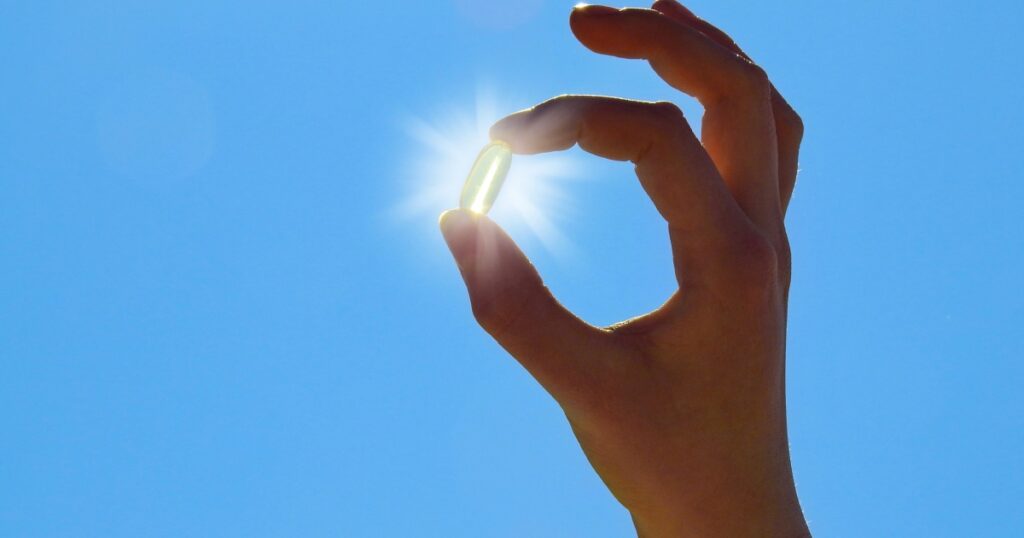
Whether or not you should be taking vitamin D as a supplement is still debated amongst many experts. That being said, we are learning more and more about how important vitamin D is for our health. Supplementation is recommended for certain portions of the year in some countries. These are places where there are fewer hours of sun each day and where your skin is usually hidden under coats and pants and other cold-weather clothing. There are also certain health conditions for which dietitians and other healthcare providers suggest vitamin D supplementation. The following are some of those conditions:
Read More: 15 Foods You Can Eat As Much As You Want Without Gaining Weight
1. Osteoporosis and Osteopenia
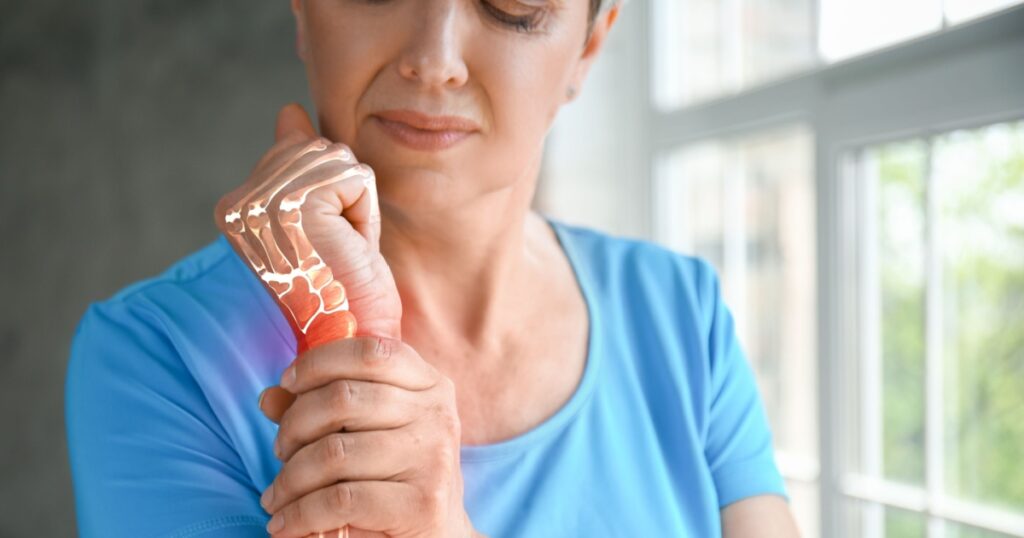
Osteoporosis and osteopenia are characterized by a decrease in bone density, making bones more fragile and prone to fractures. Vitamin D works synergistically with calcium to maintain bone strength, making it critical for individuals with osteoporosis or osteopenia to supplement with the vitamin. (2)
“Healthy adults between 19-50 years of age, including pregnant or breast feeding women, require 400 – 1,000 IU daily. Those over 50 or those younger adults at high risk (with osteoporosis, multiple fractures, or conditions affecting vitamin D absorption) should receive 800 – 2,000 IU daily,” say the experts at Osteoporosis Canada. “The best supplement to purchase is vitamin D3 (cholecalciferol). While most multivitamins or calcium supplements contain some vitamin D, the amounts can vary, so it’s important to read the label carefully to ensure you are getting the amounts you need. If you aren’t sure about the amounts in the supplements you are taking, please check with your pharmacist.” (3)
2. Inflammatory Bowel Disease (IBD)

IBD encompasses conditions such as Crohn’s disease and ulcerative colitis, which often lead to malabsorption of nutrients, including vitamin D. For individuals with IBD, supplementation is commonly recommended to prevent vitamin D deficiency and associated complications. (4)
“Insufficient vitamin D levels in IBD patients are known to heighten relapse risks and disease recurrence, potentially resulting in complications like osteoporosis and calcium deficiency due to its impact on inflammation and IBD development,” explains Dr. Antonia Topalova-Dimitrova, MD of Department of Gastroenterology, University Hospital St. Ivan Rilski and Medical University in Sofia, Bulgaria. “It is strongly advised to evaluate vitamin D levels in individuals with IBD due to the associated risks of disease relapse, surgical interventions, osteoporosis, calcium deficiency, and reduced responsiveness to biologic treatments.” (5)
We regularly use The Health Shop’s Vitamin D3 which is better at raising your 25(OH)D levels than vitamin D2 and lasts longer in your body. Second, their vitamin D3 soft gels are delivered in a base of organic flaxseed oil. Because vitamin D is fat-soluble, it’s better absorbed in the presence of fat.
We also recommend The Health Shop’s Wild Omega-3. It is a molecularly distilled, pharmaceutical-grade, pure fish oil sourced only from anchovies and sardines. It helps improve cognitive function, supports heart health, and reduces inflammation without the fishy burps (and taste)!
3. Depression and Seasonal Affective Disorder (SAD)

Limited sun exposure, especially during the winter months, can lead to a vitamin D deficiency, which has been linked to mood disorders such as depression and SAD. Supplementing with vitamin D, particularly in individuals with low blood levels, may help alleviate symptoms of these conditions. That being said, it is not fully determined whether or not vitamin D supplementation helps or not. (6)
“studies show there is a lag of about eight weeks between the peak in intensity of ultraviolet radiation and the onset of SAD, and this correlates with the time it takes for UV radiation to be processed by the body into vitamin D,” says Stewart Kimlin from QUT’s School of Public Health and Social Work, who conducted a review of more than 100 leading articles and found a relationship between vitamin D and seasonal depression. “Evidence exists that low levels of dopamine and serotonin are linked to depression, therefore it is logical that there may be a relationship between low levels of vitamin D and depressive symptoms,” (7)
4. Pregnancy and Breastfeeding

During pregnancy and lactation, a woman’s vitamin D needs increase to support the baby’s development and prevent deficiencies in both mother and child. Supplementation is often recommended to ensure adequate levels of vitamin D in these critical stages. (8)
“The safest approach is probably routinely to supplement pregnant women at greatest risk, as defined by the NICE guidelines: women of south Asian, black African, black Caribbean, or Middle Eastern origin, women who have limited exposure to sunlight (eg, those who are predominantly housebound or are generally fully covered when outdoors), women who eat a diet particularly low in vitamin D (eg, no oily fish, eggs, meat, or vitamin D-fortified margarine or breakfast cereal), and women with a body-mass index higher than 30 kg/m² before pregnancy. For other women, the optimum approach is unclear, and long-term randomised trials of supplementation are justified.” suggests Professor Philip Steer of Imperial College London, UK. (9)
Read More: Do Detox Diets and Cleanses Really Work?
5. Age-Related Macular Degeneration (AMD)

AMD is an eye disease that causes progressive loss of vision, primarily in older individuals. This vision loss begins with central vision an d grows outward. Research suggests that maintaining sufficient vitamin D levels may help reduce the risk of developing or slowing the progression of AMD. (10)
“Most people have heard that you should eat carrots to help your vision. However, there appear to be many other ways that adequate nutrition can support eye health. Having adequate vitamin D status may be one of them,” says Amy Millen, PhD, the lead author of University of Buffalo study on AMD and Vitamin D status. “This is not a study that can, alone, prove a causal association, but it does suggest that if you’re at high genetic risk for AMD, having a sufficient vitamin D status might help reduce your risk.” (11)
6. Chronic Kidney Disease (CKD)
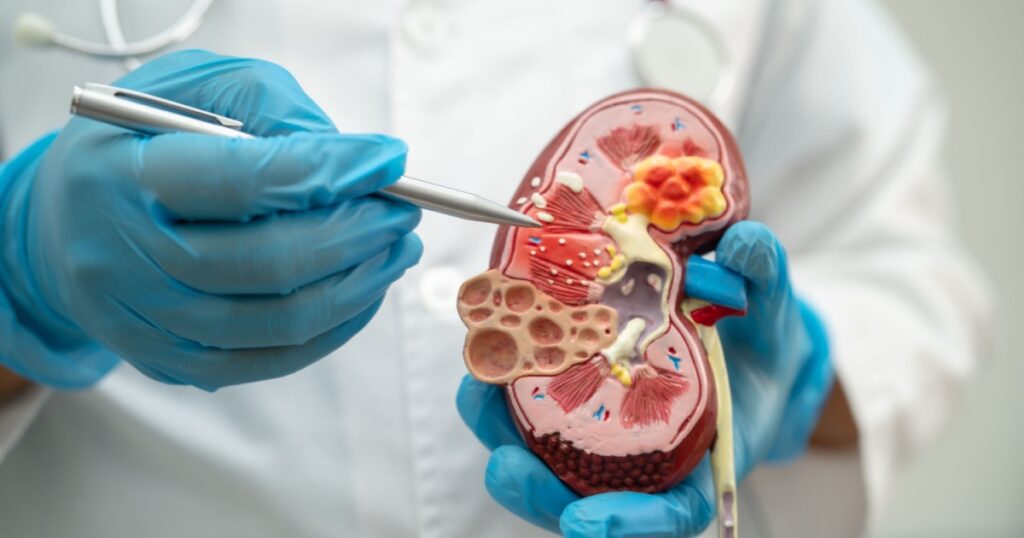
Individuals with CKD often have impaired kidney function, which affects the activation of vitamin D. Supplementation is often advised for these individuals to prevent deficiencies and minimize the risk of complications related to bone health and immune function. (12)
7. Obesity
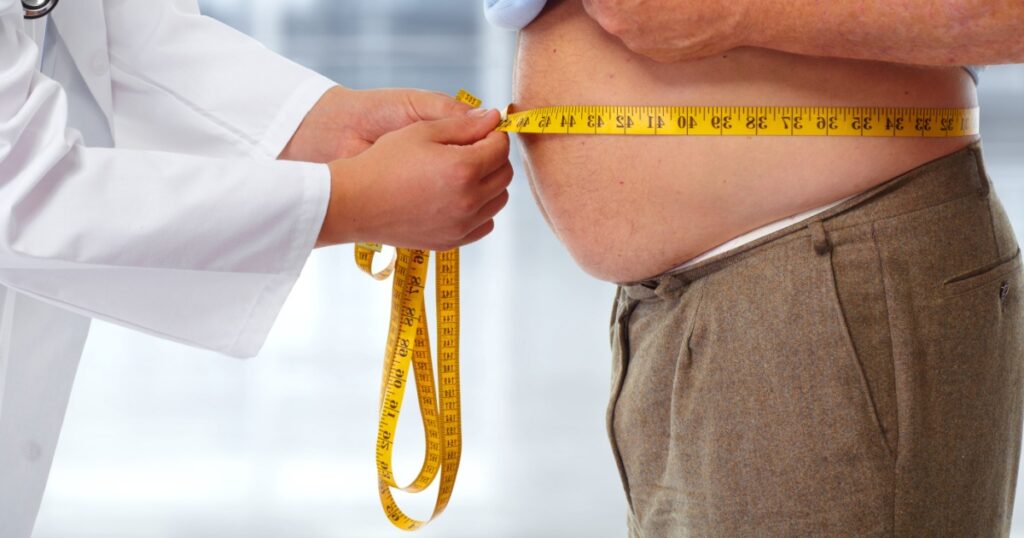
Vitamin D is fat-soluble and can become sequestered in adipose tissue, potentially limiting its availability for other bodily functions. Obese individuals may require higher vitamin D intake or supplementation to prevent deficiencies. (13)
“Vitamin D deficiency is common in people with obesity, with reported prevalence rates as high as 90%. The higher risk of deficiency is thought to be related to several factors. One contributor could be less sun exposure. In addition, since vitamin D is fat-soluble, people with higher amounts of body fat will ‘sequester’ vitamin D in fat cells, leading to lower amounts circulating in the blood. Due to this, people with obesity typically need higher amounts of vitamin D to maintain adequate levels and/or to correct a deficiency.” says Haylee Hannah, RD, registered dietitian and certified specialist in obesity and weight management. (14)
We regularly use The Health Shop’s Vitamin D3 which is better at raising your 25(OH)D levels than vitamin D2 and lasts longer in your body. Second, their vitamin D3 soft gels are delivered in a base of organic flaxseed oil. Because vitamin D is fat-soluble, it’s better absorbed in the presence of fat.
We also recommend The Health Shop’s Wild Omega-3. It is a molecularly distilled, pharmaceutical-grade, pure fish oil sourced only from anchovies and sardines. It helps improve cognitive function, supports heart health, and reduces inflammation without the fishy burps (and taste)!
8. Elderly Individuals

Aging is associated with a decrease in the skin’s ability to produce vitamin D and a decrease in dietary intake. Aging populations often have increased nutrient requirements and may not get adequate sunlight exposure, making vitamin D supplementation essential. (15)
“It’s necessary to explain to people that they risk losing muscle strength if they don’t get enough vitamin D. They need to expose themselves to the sun, eat food rich in vitamin D or take a supplement, and do resistance training exercises to maintain muscle strength,” says Tiago da Silva Alexandre, professor of gerontology at UFSCar. (16)
The Bottom Line

While sunlight exposure is the most natural source of vitamin D, there are certain conditions and situations that may warrant a vitamin D supplement. Osteoporosis, IBD, depression, pregnancy, AMD, CKD, obesity, and elderly individuals often require additional vitamin D to meet their specific needs. It is crucial to consult with a healthcare professional to determine the appropriate dosage and duration of supplementation based on individual circumstances. Adequate vitamin D levels play a vital role in maintaining overall health, and supplementation can be a valuable tool in achieving optimal well-being.
We regularly use The Health Shop’s Vitamin D3 which is better at raising your 25(OH)D levels than vitamin D2 and lasts longer in your body. Second, their vitamin D3 soft gels are delivered in a base of organic flaxseed oil. Because vitamin D is fat-soluble, it’s better absorbed in the presence of fat.
We also recommend The Health Shop’s Wild Omega-3. It is a molecularly distilled, pharmaceutical-grade, pure fish oil sourced only from anchovies and sardines. It helps improve cognitive function, supports heart health, and reduces inflammation without the fishy burps (and taste)!
Read More: Spirulina: One of the Most Nutrient-Dense Foods on the Planet
Sources
- “What’s the Deal with Vitamin D?” Columbia. August 24, 2022.
- “Osteoporosis.” CDC
- https://osteoporosis.ca/vitamin-d/
- “Vitamin D Deficiency in Patients with Irritable Bowel Syndrome: Does it Exist?” NCBI. Yasir Khayyat and Suzan Attar. March 2015.
- https://www.wolterskluwer.com/en/news/vitamin-d-crucial-for-gut-health-deficiency-linked-to-inflammation-in-ibd-patients
- “Seasonal Affective Disorder.” NIH
- https://news.uga.edu/vitamin-d-deficiency-depression/
- “Vitamin D supplementation during pregnancy: an overview.” Journals. Pérez-López, Faustino R., Pilz, Stefan, Chedraui and Peter. october 2020.
- https://www.bristol.ac.uk/news/2013/9231.html
- “Chapter 34 – Vitamin D and Age-Related Macular Degeneration.” Science Direct. Yao Jin, Chen Xi, Jiang Qin, Victor R. Preedy and Ji Yong. 2014.
- https://www.buffalo.edu/news/releases/2015/08/032.html
- “Vitamin D and Chronic Kidney Disease.” NCBI. Sandra Williams, MD, Karla Malatesta, BS, and Keith Norris, MD. 2009.
- “Association of Body Weight With Response to Vitamin D Supplementation and Metabolism.” JAMA Network. Deirdre K. Tobias, ScD, et al. January 17, 2023.
- https://www.uchealth.com/en/media-room/covid-19/vitamin-d-obesity-and-covid-19
- “Vitamin D in the older population: a consensus statement.” Springer. Andrea Giustina, Roger Bouillon, Bess Dawson-Hughes, Peter R. Ebeling, Marise Lazaretti-Castro, Paul Lips, Claudio Marcocci and John P. Bilezikian. October 26,2020.
- https://www.news-medical.net/news/20221213/Vitamin-D-supplements-reduce-the-risk-of-dynapenia-in-older-people-by-7825.aspx
